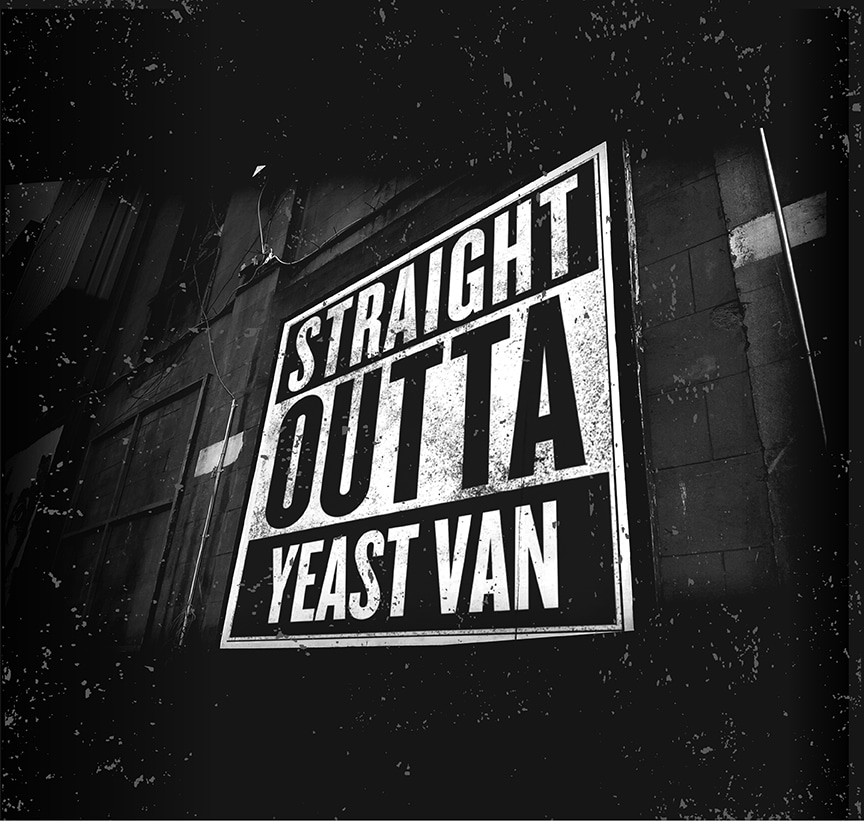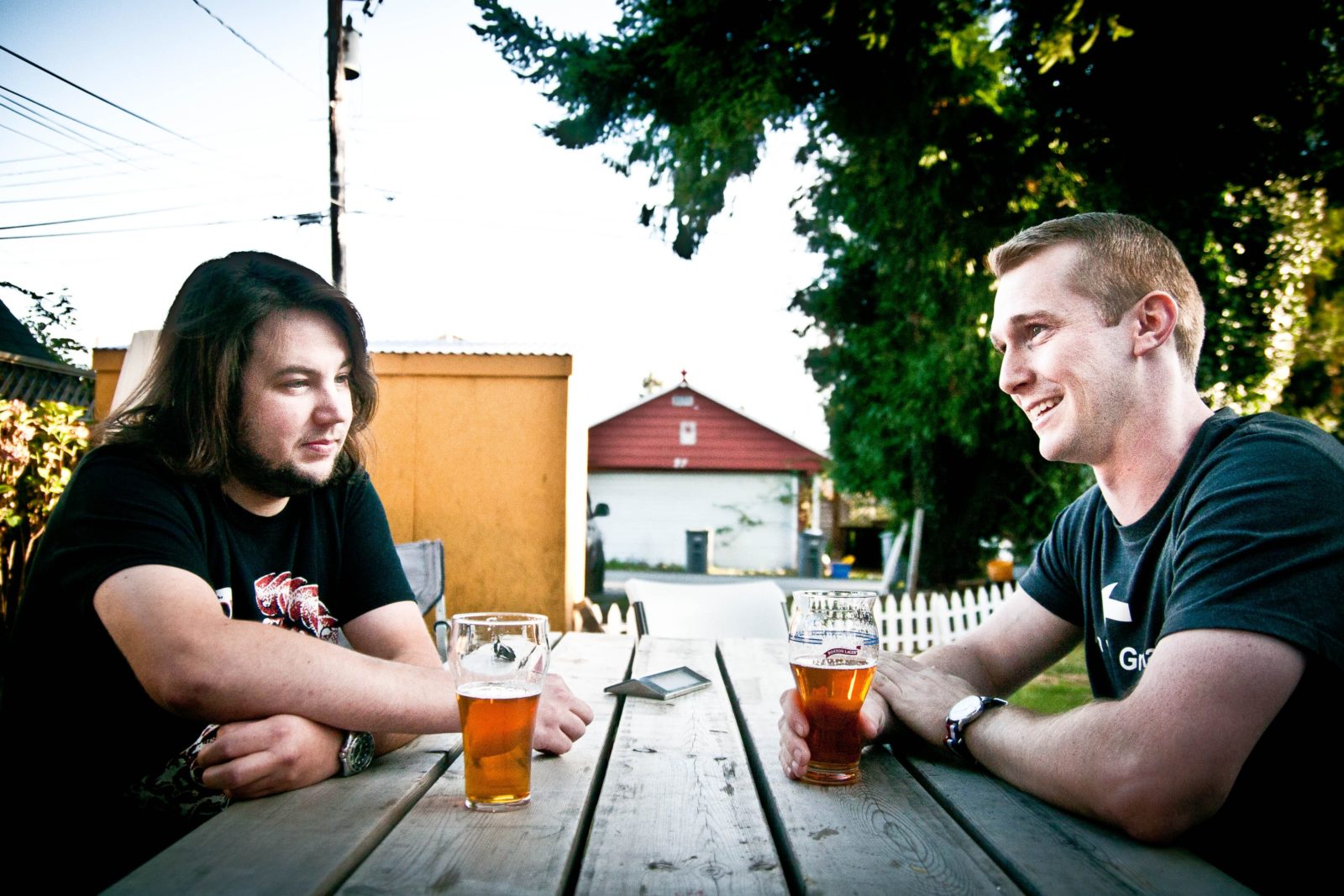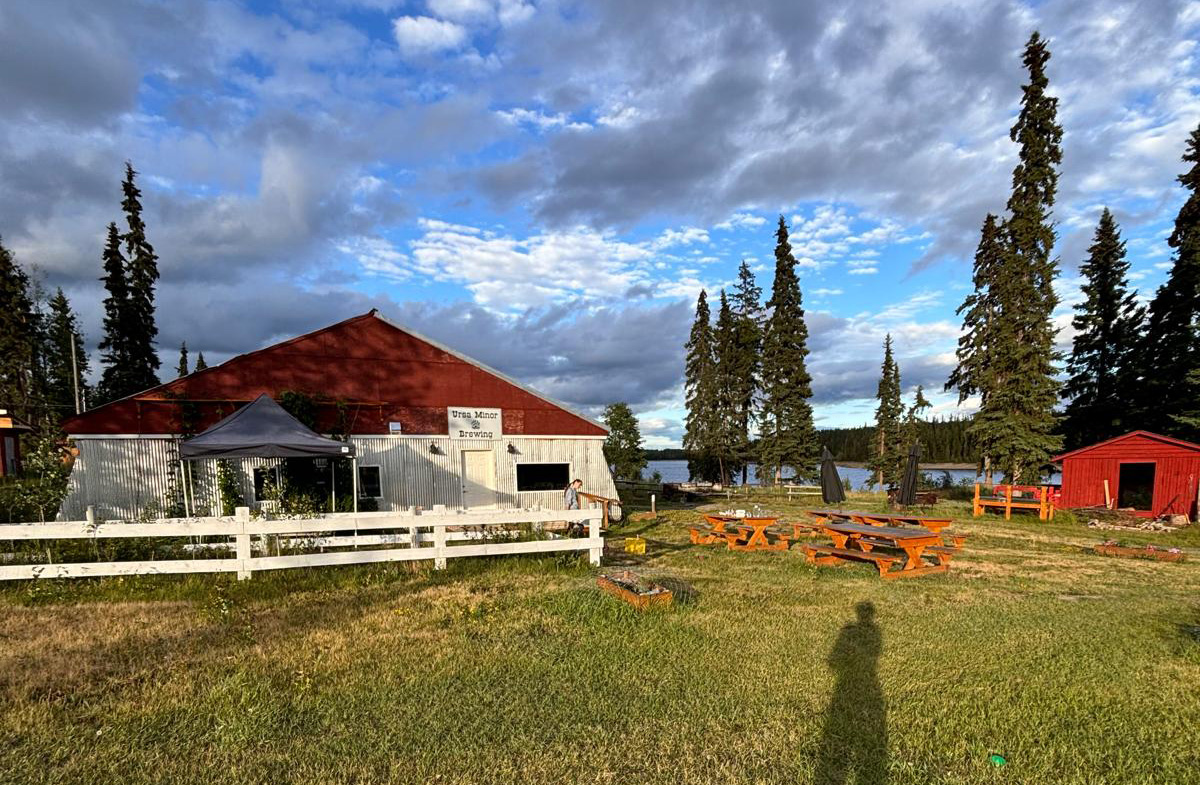
In the northwest region of central BC, three hours west of Prince George and an hour away from the nearest store or cell reception area, you’ll find Little Bear Ranch, home to Ursa Minor Brewing. Located on the shores of Ootsa Lake, the ranch and the brewery offer a rare sense of peace to those of us who are frazzled from the assault of social media feeds and all-day rush hours. But even though this B.C. paradise is appealing to visitors (my teenage daughter told me she wanted to live there!), running the brewery in such seclusion presents challenges. The practices of Ursa Minor Brewing illustrate how craft brewing, while difficult, can still be sustainable in this era of climate change and corporate monopolies.
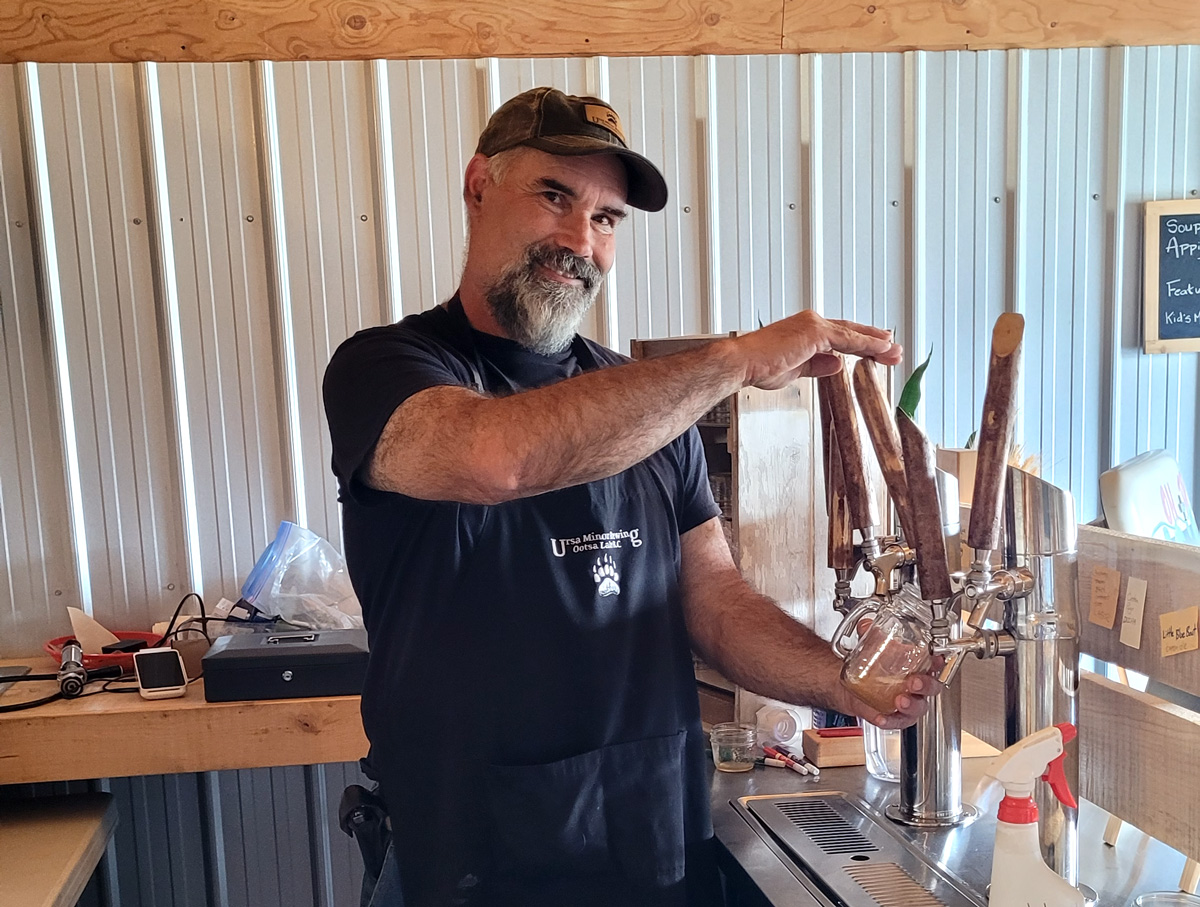
A Family Business
The brewery and ranch are a family affair, owned by Nathan and Gwyn Nicholas, with help from their daughters Mandy and Molly and Nathan’s mother Leona. Nathan’s parents first purchased the land in 1957 – hundreds of acres of wilderness with no running water or electricity. After homesteading the property, the family was living on site by 1964. As a young adult, Nathan departed the ranch for culinary school in Seattle. He realized quickly, however, that urban life was not for him. He and Gwyn returned to Little Bear Ranch, where they would raise their family and start their business. The wide-open spaces and the unique qualities of the ranch were calling to be put to use.
Nathan and Gwyn knew that they wanted to move away from the family’s traditional business of cattle ranching and into something related to tourism. This was in 2017, when B.C.’s craft beer industry was booming. Nathan thought back to when he was 18 and homebrewing out of kits. He later graduated to whole grain and began to experiment with recipes. He also considered the skills he’d learned as a trained chef. Why not use his chef’s knowledge to specialize in brewing beer that reflected the land he lived on? There was already a building with potential on the property: the small, now unused hangar that his father had built for his plane, a 1957 Piper Super Cub. Using all-in-one tanks to conserve space and simplify the brewing process, Nathan renovated the small hangar into a cozy tasting room and brewing area. By June 2020, the brewery was officially open.

Brewing Sustainably
In the brewery’s description on for the Burns Lake tourism website, Nathan and Gwyn say that their “vision has always been to create flavours in our beer that reflect our local area and culture. Our desire is for our farm to integrate with our brewery in a permaculture system where our crops contribute to our beer and our brewery contributes to our farm.” Their brewery needed to be sustainable in all the important ways: ethically, environmentally, and economically.
Maintaining positive relationships with their local Indigenous group, the Cheslatta Carrier First Nation, whose members also had a warm friendship with Nathan’s father, is an important element of their brewery’s ethos. Just as important is sustainability, which means thinking carefully about ingredients and water usage. “Sustainability and biodiversity are key to our operation… we generate almost zero waste, recycling almost everything,” said Nathan in an interview with We Explore Canada. The large amount of water used in brewing means that water was one of his main priorities in building a sustainable brewery.
Of beer’s four main ingredients (water, grain, yeast, and hops), water is arguably the most important. It’s the foundation of your beer. Water is also expensive for a brewer; Nathan uses 1,500 litres of water for each 500-litre batch of beer. He repurposes potentially wasted water to sanitize, rinse, and clean during the brewing process, and it’s also used as drinking water for their huge brewery pig, Willy, and their flocks of sheep. Just as importantly, Ursa Minor’s water is as local as can be. Nathan draws water directly from Ootsa Lake, which is part of the Nechako Reservoir. A pipe at the lake’s edge, not far from his house, pumps water in through their own filtration system, which feeds the brewery and the houses on the property (Northern Health tests it monthly for safety).
This local water is also what’s in Ursa Minor’s beer, of course. Nathan doesn’t even use brewing salts. “For most of the styles I make, the water here is perfect,” he says. Lagers, dark ales, saisons, and malt-forward IPAs are what’s usually found on Nathan’s taplist. Big, hoppy IPAs and hazys aren’t really his thing. And he’s right: the water there helps him create smooth, full-bodied and malt-forward beers.
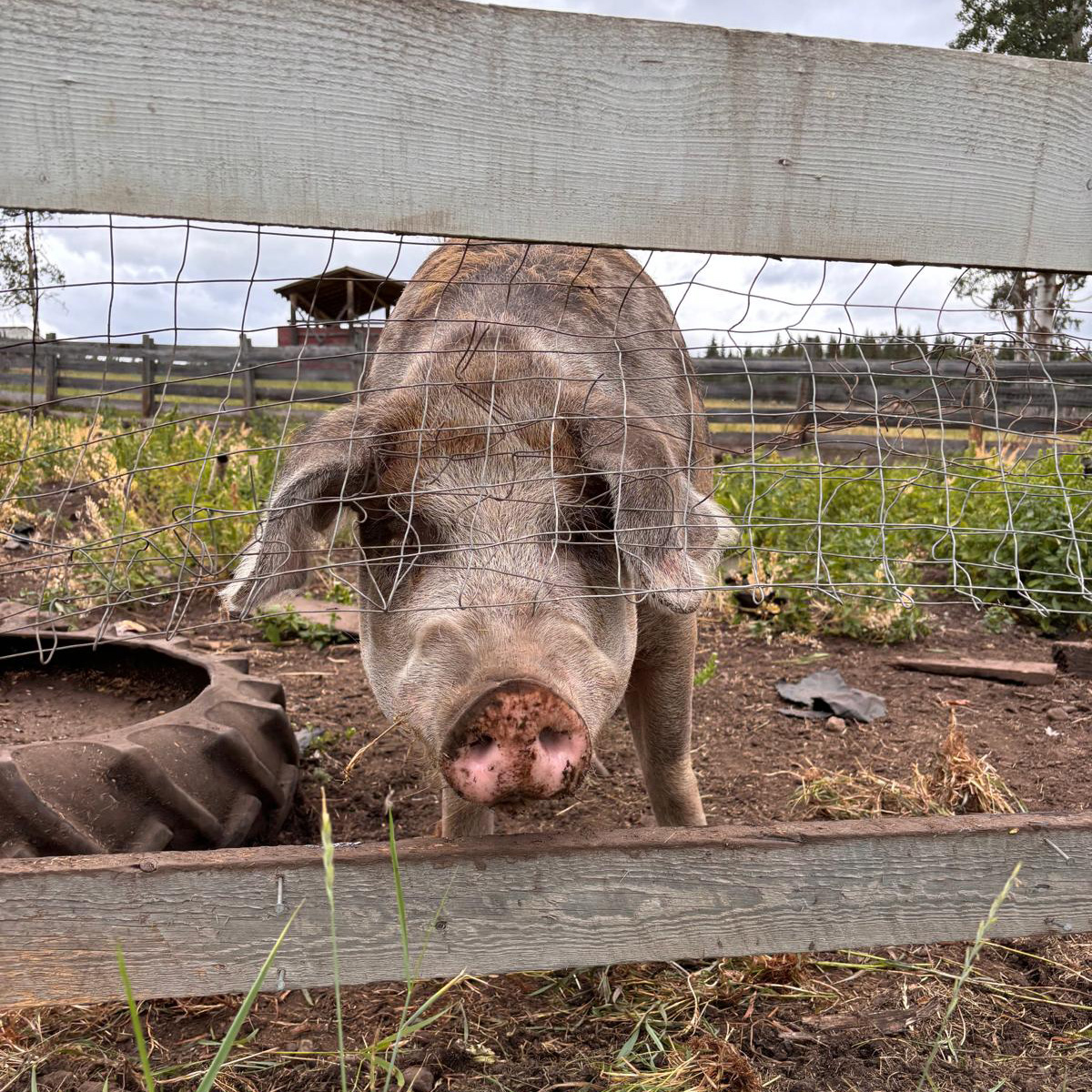
Using the lake’s water means Nathan needs to be flexible and resourceful, though. If the water levels are low, the intake pipe won’t draw enough. If the temperatures drop, that pipe will freeze. That is exactly what happened in December 2023: low water levels and low temperatures caused the waterline to freeze. While water was still accessible in his home, the brewery had none. Nathan built a greenhouse over the pipe in hopes of defrosting it, but ultimately, he just had to wait it out and rely on the beer he already kegged and canned. It’s all part of living sustainably on a remote property.
Kegging and canning were some of the biggest challenges when he was setting out, Nathan recalls. Scaling up a homebrew setup is tricky, but Nathan had experience in scaling up production in his previous life as a chef. Packaging and marketing were new to him. Such difficulties were unavoidable, though; being able to store and distribute his beer is a must, especially when dealing with water shortages. It’s also important to find a marketing niche. “Wild taste from a wild place”, Ursa Minor’s slogan, perfectly captures the unique quality of the beer and its terroir. Nathan and Gwyn’s younger daughter Mandy created all their label designs, whose rich colours convey the beauty of the landscape surrounding the brewery.
Many of the other ingredients in Ursa Minor’s beer are nearly as local as the lake. All of Little Bear Ranch, including the brewery, is on the agricultural land reserve, which means that at least 50% of the brewery’s grain must come from B.C. Nathan picks up each shipment himself from Burns Lake. He recalls that in their early days they splashed out on importing malt from England and Germany, only to find that locally produced malt tasted just as good.
While hop bines crawl over the door of the brewery, Nathan can’t produce quality hops in sufficient quantities to brew. He buys most of his hops from Chilliwack, supporting B.C. farmers. However, big hoppy beers aren’t his preference, so he also experiments with local adjuncts like haskap berries, rhubarb, juniper branches, raspberries, and more. These are all grown on or near Little Bear Ranch and he loves the unique flavour notes created by these local additions. “I like brewing beer that pairs well with food,” he says. He has a chef’s instinct for this, and each week he fires up his smoker to prepare meals that brewery visitors can enjoy with one of his brews.
I’ve stayed for a few days at Little Bear Ranch each summer for the past three years. When we rent out the little red 1960s cabin (where hot water is powered by solar panels and a woodstove) and sip Nathan’s beer while visiting Rosa the donkey or feed spent grains to Willy the brew pig, we have a brief glimpse of how the land, the brewery, the animals, and the people all fit together. The goal of the brewery and the ranch is not simply profit; Nathan and Gwyn want to craft a sustainable way of life that preserves the wilderness they live on. There are few places like this left in B.C., and any customer of Ursa Minor Brewing or guest at Little Bear Ranch is lucky to have (if I may adapt the brewery’s motto) just a little taste from this wild place.


